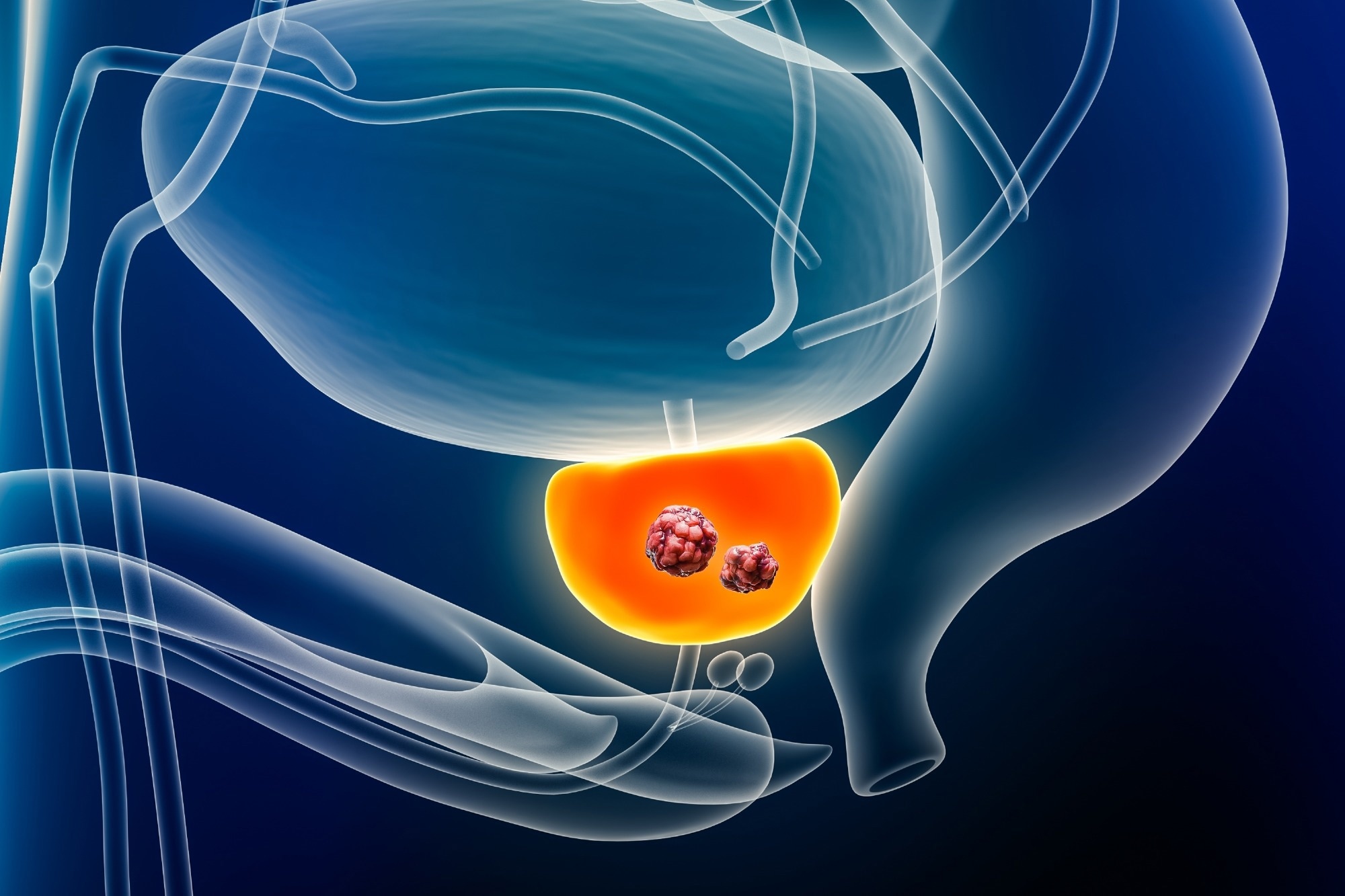Prostate cancer has been the most common non-skin cancer in males. The incidence of prostate cancer varies across populations, with the highest in African males, and its risk is highly influenced by genetics. GWASs have identified 278 prostate cancer risk variants, albeit most samples were from people of European ancestry. Multi-ancestry analyses have been suggested to improve risk prediction for prostate cancer.
 Letter: Characterizing prostate cancer risk through multi-ancestry genome-wide discovery of 187 novel risk variants. Image Credit: MattL_Images / Shutterstock
Letter: Characterizing prostate cancer risk through multi-ancestry genome-wide discovery of 187 novel risk variants. Image Credit: MattL_Images / Shutterstock
The study and findings
The present study performed a GWAS meta-analysis of prostate cancer in people of multiple ancestry groups. The study included 122,188 European, 10,809 East Asian, 19,391 African, and 3,931 Hispanic prostate cancer cases. A fixed-effect meta-analysis was performed per ancestry group. In total, > 42.4 million variants with minor allele frequency (MAF) > 0.1% were assessed for associations with the risk of prostate cancer.
The team identified 451 risk variants, including 187 novel variants, with genome-wide significance. MAF of most risk variants (84% to 95% across ancestry groups) was > 1%. Of these, five (African), 19 (European), and three (Asian) risk variants were population-specific, with MAF ≤ 1% in other populations. There were 370 risk variants with MAF above 1% in all populations.
Of these, 125, 208, 247, and 369 were nominally significant in Hispanic, Asian, African, and European populations, respectively. The effect sizes for risk variants with MAF above 1% were correlated across populations. The heterogeneity in effect sizes was significant for 78 variants. Many lead risk variants were implicated in the expression of genes in prostate tissues and cell lines.
Next, they performed a permutation test controlling for linkage disequilibrium patterns and MAF to determine the extent to which risk variants exhibited prostate-specific regulatory function. Risk variants were enriched in regions of prostate-specific regulatory activity across candidate cis-regulatory elements and splicing (sQTLs) and expression (eQTLs) quantitative trait loci.
Further, proteome- (PWAS) and transcriptome-wide association studies (TWAS) were performed to explore the molecular mechanisms of prostate cancer risk. This revealed 746 associations across 230 genomic regions and 528 genes, with the highest contribution (47%) from expression in normal prostate. Of the 451 GWAS genomic risk regions, 237 co-localized within 250 kilobases (kb) of proteome- or transcriptome-wide significant associations.
Of the 230 PWAS/TWAS genomic risk regions, 45 did not co-localize within 250 kb of 451 genome-wide significant variants. Next, the team compared the performance of genetic risk scores (GRSs) of past marker sets (GRS100, GRS269, and GRS181) with the current set (GRS451) of 451 risk variants. The assignment of unaffected males to GRS categories was more stable with the discovery of more variants.
That is, 69% to 70% of males in the highest or lowest quintile were in the same quintile between GRS269 and GRS451, compared to 58% between GRS100 and GRS181. In addition, the percentage of cases increased within higher categories and decreased within lower categories in each population. Risk classification with GRS and age by net re-classification index showed substantial improvement from GRS100 to GRS451.
This improved risk prediction of GRS451 was verified in replication studies among African and European males not included in GWAS. Age was found to modify the association between GRS451 and prostate cancer risk. GRS451 was associated with the risk of aggressive and non-aggressive prostate cancer in Hispanic, Asian, and European populations. However, in African prostate cancer cases, GRS451 was associated with a higher risk of aggressive disease.
Fifty-one risk variants were associated with the GWAS of prostate-specific antigen (PSA). When these (51) PSA variants were removed from the analysis, the GRS was more strongly associated with aggressiveness in European, African, and Hispanic males, suggesting that some variants may be more over-represented in males with less aggressive prostate cancer due to their association with PSA levels.
Conclusions
Together, this multi-ancestry analysis demonstrated a 57% increase in non-European case numbers over previous GWASs and revealed 187 novel risk variants. Furthermore, the ability to differentiate between aggressive and non-aggressive disease highlights the utility of GRS for risk assessment and classification in prostate cancer. Nevertheless, when and how this information should be incorporated in decision-making for screening and early detection of prostate cancer remains to be determined.